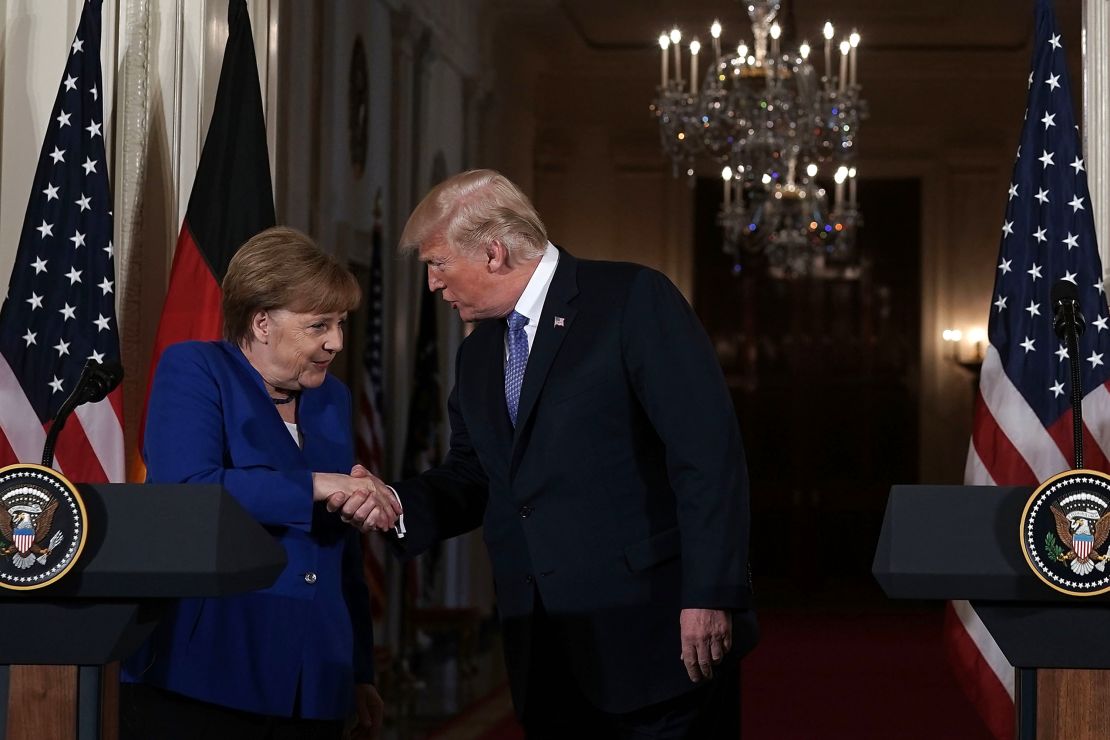As the US turns in on itself in the age of Donald Trump, German Chancellor Angela Merkel is viewed by many as the current leader of the free world.
Now, after 13 years at the helm of of Europe’s largest economy, she may be going sooner than expected. On Monday Merkel announced she was stepping down as leader of her right-of-center Christian Democratic Union (CDU) party.
“I will no longer run for party chair at the next federal party conference. I will no longer run for Chancellor, nor will I run for any other political office,” she said when announcing her decision.
Merkel still has three years to go as Chancellor, but both her party and her coalition partner, the Social Democratic Party (SPD) – are being torn apart by their left and right wings.
Add to that the likely leadership succession race in the CDU, and the already-fragile German coalition is looking shakier by the minute.
“The question is does the government tumble into new elections?” said Quentin Peel, an associate fellow with the Europe program at UK think tank Chatham House.

A former scientist, Merkel grew up in East Germany when it was still a satellite of the old Soviet Union.
The daughter of a Lutheran clergyman, she entered politics at the relatively late age of 35 following the collapse of the Berlin Wall, when she joined a new party called Democratic Awakening that later merged with the CDU.
She was elected to parliament in 1990 and became leader of the CDU in 2002.
She soon showed a knack for toppling those who underestimated her – including her onetimementor, Chancellor Helmut Kohl, when he came under the spotlight on corruption charges.
The woman he used to call his “m?dchen,” or little girl, became his fiercest critic.
In 2005, she became Chancellor – the first woman ever to hold the role.
Early on in her leadership Merkel was criticized as being indecisive and reluctant to speak out.
And as the German economy grew – so did Merkel’s popularity. Germans like stability and she gave it to them, earning the country’s first female leader the nickname of “Mutti” or mother.
She stood up to Donald Trump when he said Germany was “totally controlled by Russia,” reminding him that having grown up under Communism she knew how to deal with authoritarian regimes.
She stood up to Barack Obama when in 2013 the US was suspected of monitoring her phone, saying it was completely unacceptable.
Most recently, she stood up to Saudi Arabia when she froze arms sales to the country following the murder in Istanbul of Jamal Kashoggi.
It is also the troubles of the Middle East that have led to the decline in the Chancellor’s popularity.
Merkel showed her resolve in 2015 when she allowed more than a million refugees, most escaping Syria’s civil war, to cross into Germany. To those who criticized her, she replied: “We can manage.” It was a decision that defined her political career.
Who will miss her in Europe?
The decision by Merkel to stand down will most likely impact Europe’s other prominent female leader, the UK Prime Minister Theresa May.
Merkel was reassuring following a summit in Brussels earlier this month that an agreement could be reached between the European Union and the UK on the future relationship of the two when the UK leaves the 28-nation bloc at the end of March next year.
Suddenly, Merkel the peacemaker is preparing to exit the scene, increasing the possibility of the UK crashing out of the EU with no deal.
French President Emmanuel Macron, who has slid in popularity in recent opinion polls, will no doubt miss Merkel’s presence in Germany.
He has a strong majority in the French parliament so will weather the storm, but further political integration of the EU could stall.
And then there is Italy, led by a populist coalition that includes the xenophobic League Party.
Germany was expected to be the main challenger to last week’s decision by the European Commission to oppose Rome’s plans to burst its spending-to-debt ratios allowed as a member of the EU’s single currency.
Europe will be watching closely to see who will succeed Merkel as the leader of Germany, and as the far right rises in places as far apart as Austria and Brazil, whether Germany can find another leader of the free world.

